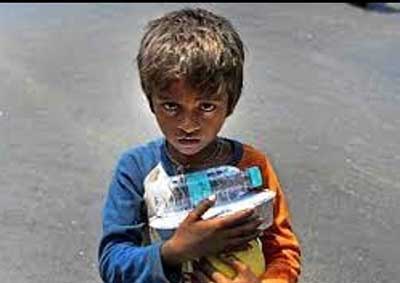Relevance: GS-2: Welfare schemes for vulnerable sections of the population by the Centre and States and the performance of these schemes; mechanisms, laws, institutions and Bodies constituted for the protection and betterment of these vulnerable sections.
Key Phrases: National Commission for Protection of Child Rights, ‘Bal Swaraj’ portal, COVID orphans, Fundamental Right to Education, Commission for Protection of Child Rights (CPCR) Act, 2005, UN Convention on the Rights of the Child.
Context:
- Recently, the Supreme Court’s attention was drawn to the reality that an unaccounted number of children have dropped out of school because their parents, though alive, have lost their jobs or families got displaced during the COVID-19 outbreak.
- So far, the court has mainly focused on identifying children orphaned or who have lost one of their parents to the pandemic.
What is the Issue ?
- A Supreme Court Bench has learnt that very little was known about children who were forced to drop out of school during the COVID-19 upsurge when their families lost their sole means of sustenance.
- In fact, the court wondered whether children who dropped out because their parents lost their livelihood may equal to the number of children orphaned by the COVID-19 virus.
- Children who left school to support their families had not got the attention they deserved.
- While authorities like the National Commission for Protection of Child Rights (NCPCR) and State governments were actively collecting data on COVID orphans, children who dropped out of school hardly get a mention for the sole reason that their parents or guardians were still alive.
- Also such children also do not figure in the NCPCR’s ‘Bal Swaraj’ portal which collected data on COVID orphans.
- There was no information, even on the internet, about children who left school after their parents lost their jobs or the families got displaced due to migration of labour.
Some Facts About NCPCR:
- It is a statutory body established by an Act of Parliament, the Commission for Protection of Child Rights (CPCR) Act, 2005.
- The Commission works under the aegis of Ministry of Women and Child Development.
- It ensures that all Laws, Policies, Programmes, and Administrative Mechanisms are in consonance with the Child Rights perspective as enshrined in the Constitution of India and the UN Convention on the Rights of the Child.
Constitutional Provisions guaranteeing Fundamental Right to Education
- The Constitution (Eighty-sixth Amendment) Act, 2002 inserted Article 21-A in the Constitution of India to provide free and compulsory education of all children in the age group of six to fourteen years as a Fundamental Right in such a manner as the State may, by law, determine.
- The Right of Children to Free and Compulsory Education (RTE) Act, 2009, which represents the consequential legislation envisaged under Article 21-A, means that every child has a right to full time elementary education of satisfactory and equitable quality in a formal school which satisfies certain essential norms and standards.
- With this, India has moved forward to a rights based framework that casts a legal obligation on the Central and State Governments to implement this fundamental child right as enshrined in the Article 21A of the Constitution, in accordance with the provisions of the RTE Act.
Way Forward:
- The way forward to track these children would require education departments verify their details.
- In views of the Supreme Court, education is the fundamental right of children, thus,states should come to the rescue of these children.
- States and Union Territories to respond to the issue and come up with a course of action to “ensure that dropouts due to the adverse effects of COVID would not continue”.
Conclusion:
- The severe effects of pandemic-induced education divide and learning loss will impact an entire generation of students.
- Thus, there is a need to recognise it early and make swift, serious course corrections in order to comply with the Sustainable Development Goal 4 (SDG 4) which aims to “ensure inclusive and equitable quality education and promote lifelong learning opportunities for all” by 2030.
Source: The Hindu
Mains Question:
Q. Right of Children to Free and Compulsory Education (RTE) Act, 2009 is marked as a watershed legislation for achieving the goals of SDG-4. Discuss. Also examine the impact of pandemic on the implementation of the Act. (250 words).







